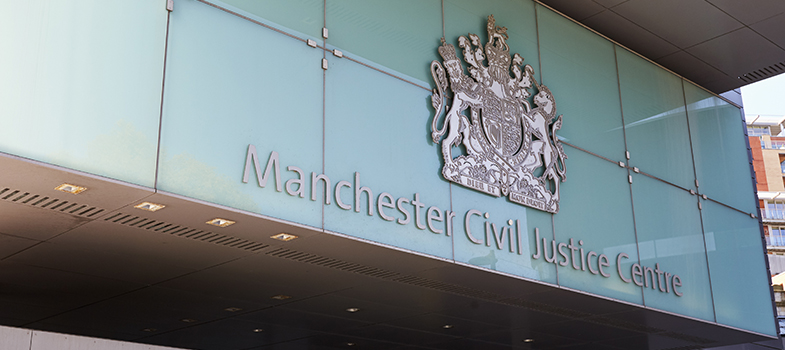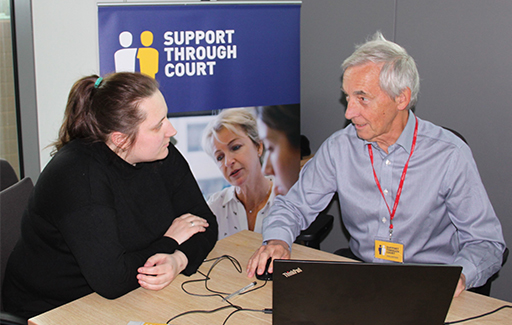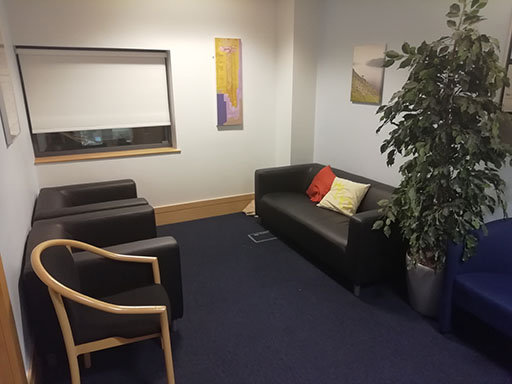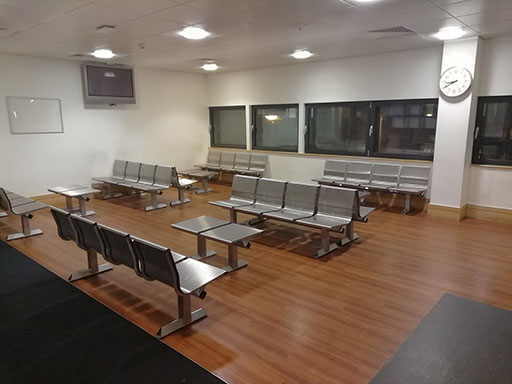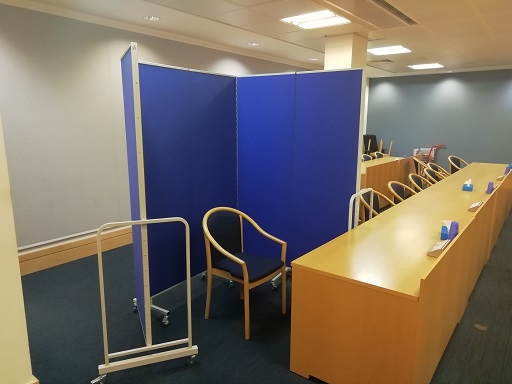4.5 Special measures and domestic abuse
Special measures often need to be considered in cases involving domestic abuse. You read in the last section that concerns about abuse, intimidation and whether a matter is contentious are all relevant when considering whether special measures are appropriate.
Activity 6
What types of behaviour amount to abuse which the court can take into account when considering whether special measures are appropriate?
Comment
The court will consider a range of different types of abuse including domestic abuse, sexual, physical or emotional abuse, forced marriage, “honour based violence”, female genital mutilation and human trafficking. They will also consider any abuse or discrimination due to race, culture, gender or sexual orientation.
Did you know?
The most common
If you are interested in finding out more, please look at Support Through Court’s first training module on domestic abuse called Introducing Domestic Abuse [Tip: hold Ctrl and click a link to open it in a new tab. (Hide tip)] .
Activity 7
In our case study, Jazmin has been in a relationship with Steve where there has been a history of domestic abuse. She was controlled by her partner to the extent that it affected her mental health. Eventually, she was able to escape the relationship and she moved into emergency accommodation with her two children. If you need a reminder you can read about the family again.
A support worker at the refuge helped Jazmin to get some free legal advice. The solicitor has advised Jazmin to obtain a Child Arrangements Order. Jazmin approaches you in the Support Through Court office for help.
From your experience as a volunteer, what are clients most afraid of in coming to court in these circumstances?
Comment
You may have thought of a number of considerations. It may be that they are most afraid of losing their children. A common concern is that people are afraid of seeing their abuser in court or bumping into them at the waiting areas.
Did you know?
As part of the special measures which can be made, many courts have separate waiting areas away from the public waiting area where individuals can wait for their court hearing without fear of meeting the other party.
Jazmin describes her experiences whilst living with Steve as follows:
“At first Steve and I got on really well. He was always very generous and complimentary. After I became pregnant, his behaviour towards me changed. He started to get really jealous of me and my friends. He would behave badly if they came around and eventually they stopped coming over. I was so tired looking after our baby and making sure Steve got what he wanted that I didn’t have time to myself anymore.
Steve started taking the child benefit money and spending it on drink. He would give me what he called ‘housekeeping’, so I could buy food and clothes for our daughter. He would not give me any money for Jaden, my son from a previous relationship. Some days I didn’t have enough money to buy food for myself so I went hungry. He was always checking up on me and he would get really angry when I didn’t do what he wanted. I tried to leave a couple of times but he would always talk me into coming back. He said he loved me and begged me to stay.
One day, I was late back from a doctor’s appointment. He went mad at me, saying I was having an affair. He smashed the place up and punched me in the face. I was holding our daughter at the time and Jaden was in the house, hiding in his bedroom. A neighbour called the police and they came and took him away. I was scared that when he got home he would do something worse, so whilst he was out of the house I managed to get away and get a room in a women’s refuge.
I have heard that he is trying to find where I am staying and wants to take the children from me. I am really scared.”
Activity 8
Which of these experiences would be evidence of concerns about abuse or intimidation, which might allow Jazmin to make an application for special measures?
Comment
The clearest evidence would be that Steve had assaulted Jazmin. However, not all domestic abuse involves violence. Evidence of Steve’s controlling behaviour could also be used to support an application for special measures. You can learn more about coercion and control in the first training module on domestic abuse called Introducing Domestic Abuse.
Activity 9
As a volunteer you need to consider which special measures might help Jazmin to attend court without significant distress and put her views to the court.
Look at the following images of special measures. Click on the image that you think may be most appropriate in Jazmin's situation.
There is one correct answer.
Answer
The special measure image below may be the most appropriate in this situation:
The image depicts measures to prevent a party or witness from seeing another party or witness.
The other options in the images were:
Intermediary – Jazmin is able to communicate well and understand what is being said in court. So, this measure would not be appropriate for her.
Aids to communication – Jazmin is able to speak for herself and when she talks people can hear her and vice versa. So, this measure would not be appropriate for her.
Video link – whilst giving evidence by live link would certainly make Jazmin feel more comfortable and reduce her anxiety, Judges will tend to prefer to speak to a party in person. Special measures must be proportionate to the level of need and, therefore a video link would probably be seen as disproportionate. Especially if it was felt that other, less obtrusive measures could achieve the same result.
Separate waiting area – this would be useful for Jazmin as she may be intimidated by Steve in the waiting area. However, if she then has to face Steve in court this might prevent her from participating fully due to the anxiety caused by seeing Steve in the court room.
Anything else – a Judge can order any adjustment they see fit if it will assist the parties to be able to partake more fully in the proceedings. Jazmin’s needs can be accommodated through the use of other measures listed in this activity
4.4 Who do special measures apply to?
